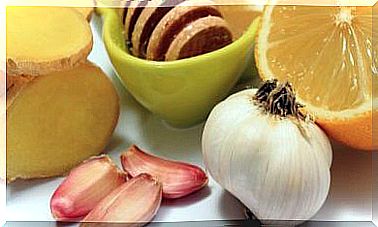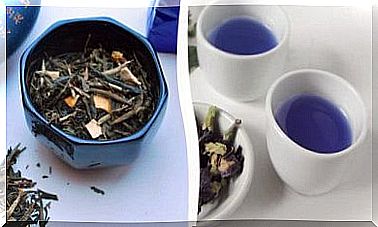The 8 Best Foods For Concentration And Memory
Natural foods are ideal for supplying our brain with the energy it needs and improving memory performance. They should become part of our daily diet so that we can see their effects within a short time
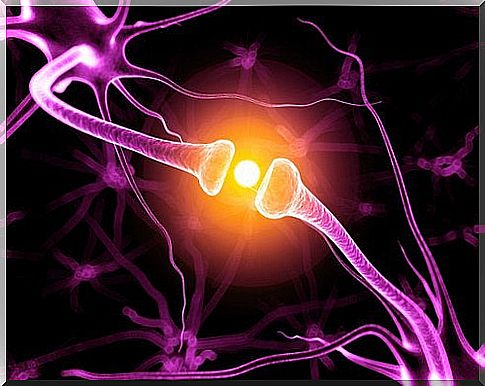
Good concentration and memory, which guarantee our performance, play a role in the implementation of countless tasks in everyday life, studies and work.
Many people assume that it is not possible to do anything to improve memory and concentration.
In fact, we can not only influence this positively by eating a healthy and balanced diet, but also by adopting a healthy lifestyle and exercising our heads regularly .
The brain has its own requirements for the supply of nutrients and uses, for example, different energy sources than the other tissues.
A sufficient supply of these necessary nutrients is important so that our gray cells can still perform well in old age.
We cannot stop the aging process, not even that of the brain. But there are certainly foods that we can use to strengthen the nerve cells. They support the prophylaxis of neurodegenerative diseases and also delay their development.
Therefore, in this article, we recommend eight foods that can help you improve your memory and improve your performance.
1. Whole grain cereals
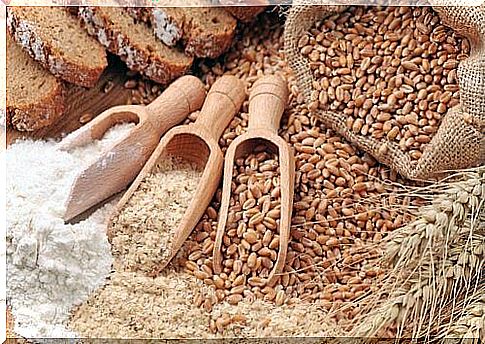
Every single cell in the body needs energy in order to be able to live and perform its function. In order to provide them with this energy without driving up blood sugar levels, foods with a low glycemic index should be consumed.
A consistently high, but not pathologically increased, blood sugar level guarantees the brain a constant supply of energy. This is how memory works optimally.
Whole grains are one of those low glycemic index foods. At the same time, they also provide a number of other nutrients from which our nerve cells benefit.
Recommended types of grain and products include:
- Quinoa
- bran
- Whole grain rice
- Whole wheat pasta
- Whole grain bread
2. Essential fatty acids
Essential fatty acids are those fatty acids that can not be synthesized by the body and therefore have to be taken in with food.
Essential fatty acids make a decisive contribution to keeping the brain healthy. Their positive effects on the health of the cardiovascular system, especially the blood vessels, should not be underestimated .
The most important essential fatty acids are the omega-3 fatty acids. These are found in the following foods :
- salmon
- Trout
- mackerel
- herring
- sardine
- Chia seeds
- linseed
- Soy and soy products
- Pumpkin seeds
- Dried fruits
All of these foods should be consumed in moderation and can improve cognition and memory. In this way, diseases that are associated with impaired memory function are prevented, such as Alzheimer’s disease.
3. Blueberries for focus and memory
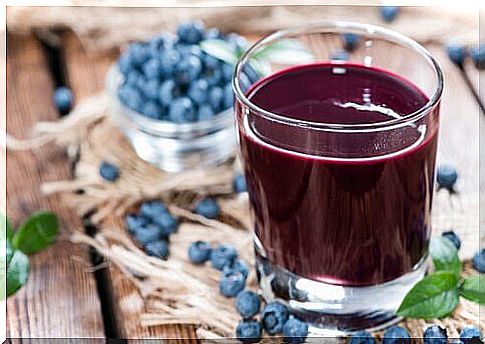
When it comes to antioxidant foods, blueberries are sure to take one of the top spots. It can only be recommended to consume them daily.
Blueberries in particular are known to be beneficial for the brain and memory function. The antioxidants they contain prevent free radicals from damaging cells, thereby reducing cognitive abilities.
4. Avocado
The avocado is a very “complete” food: it provides minerals such as potassium, essential fatty acids and fiber. It is free of cholesterol, but rich in antioxidants that prevent oxidative damage to the cell nuclei.
When consumed in moderation, the avocado is an ideal source of energy for the brain. The memory is improved, the performance increases and prevent neurodegeneration.
5. Olive oil

When fat is needed to prepare a delicious and healthy meal, olive oil is the best choice. Unlike other fats , olive oil does not cause a worrying increase in cholesterol and therefore does not harm the arteries.
Olive oil contains essential fatty acids that even contribute to the healthy regulation of blood fat concentrations.
This food also contains vitamins, minerals, carbohydrates and antioxidants, all of which protect the brain and prevent degenerative diseases.
6. Tomatoes
These red vegetables contain powerful antioxidants, one of which is lycopene. This not only gives the tomatoes this color, but also the ability to protect cells from the attacks of free radicals.
Such cell damage is closely related to the development of neurodegenerative diseases such as Alzheimer’s disease.
7. Broccoli
Broccoli is not a favorite vegetable for many, an opinion that our body would probably not share: in fact, broccoli is one of the healthiest vegetables we know.
In addition to important minerals, it provides antioxidants that prevent oxidative damage to the genetic make-up. Its vitamin K content also benefits the brain and allows it to perform its functions optimally.
8. Celery

Celery contains luteolin, a flavonoid that has an antioxidant effect and thus anticipates premature tissue aging. In this way, the brain stays young longer and thus efficient.
Regular consumption of celery has positive effects on physical and mental health. The daily consumption of these vegetables is recommended, then maximally utilize its advantages.
Finally, we would like to point out the importance of an adequate water supply. Mental exhaustion is very often caused by dehydration of the organism.



